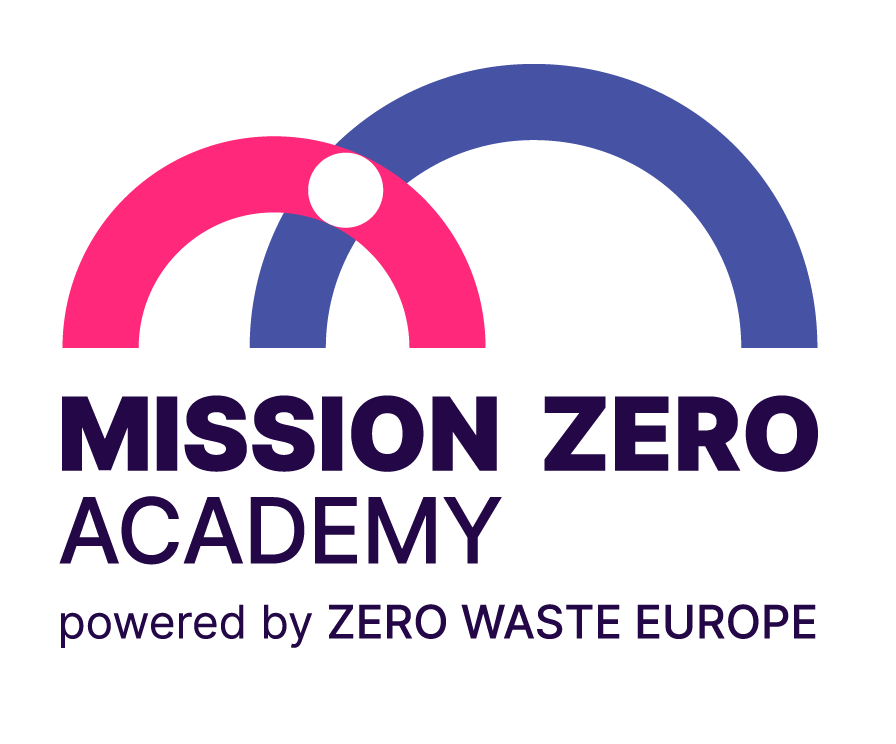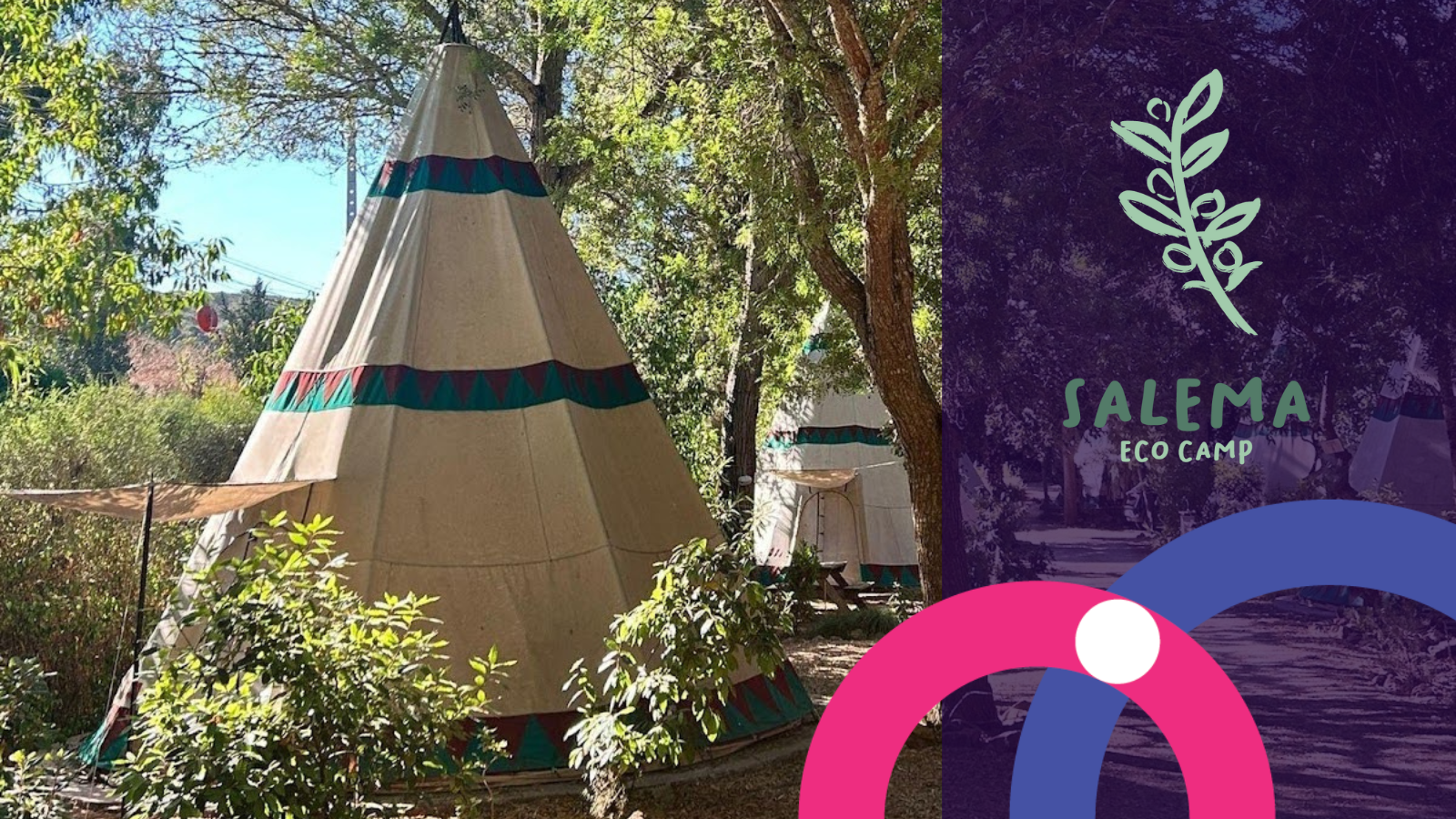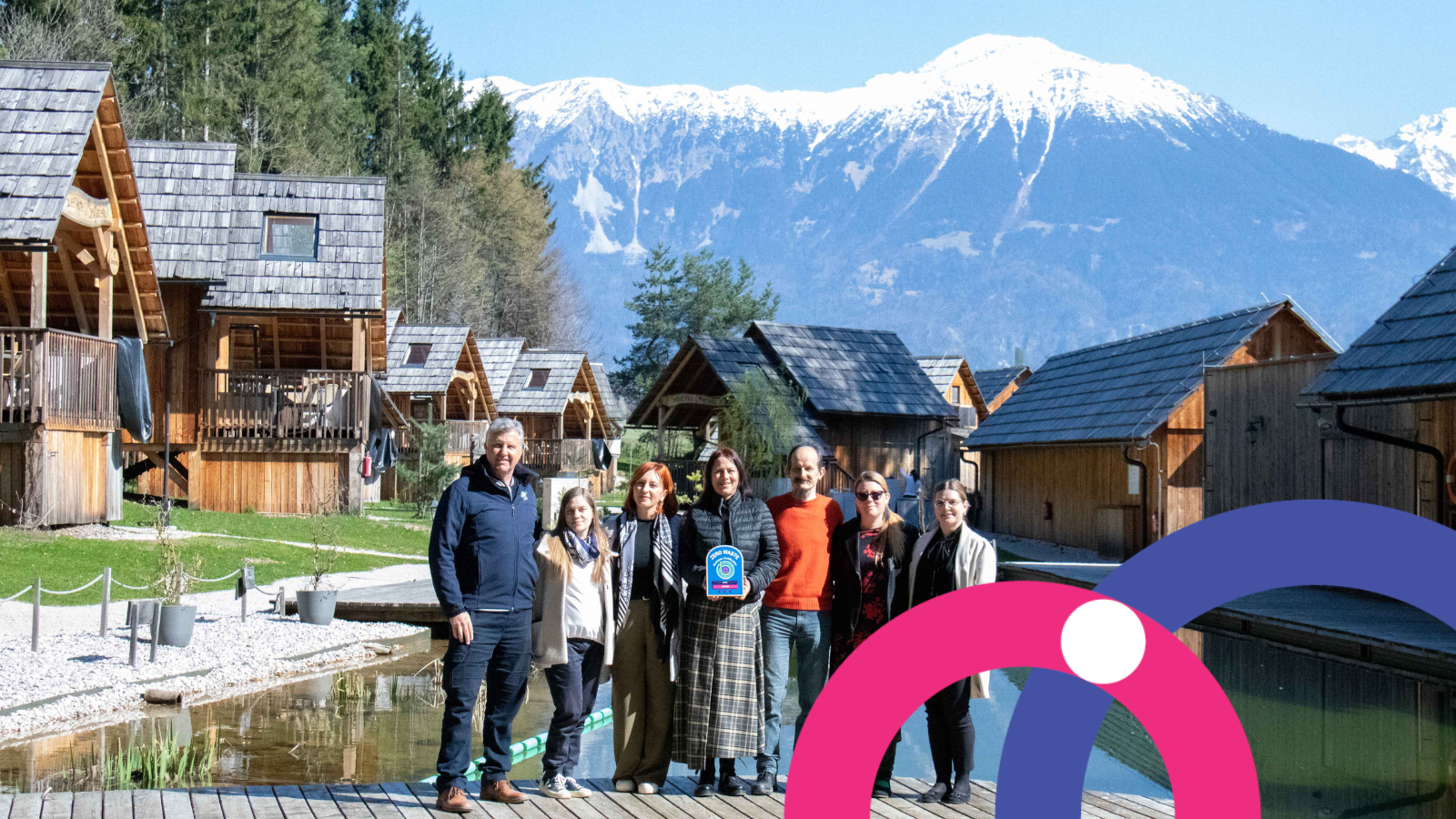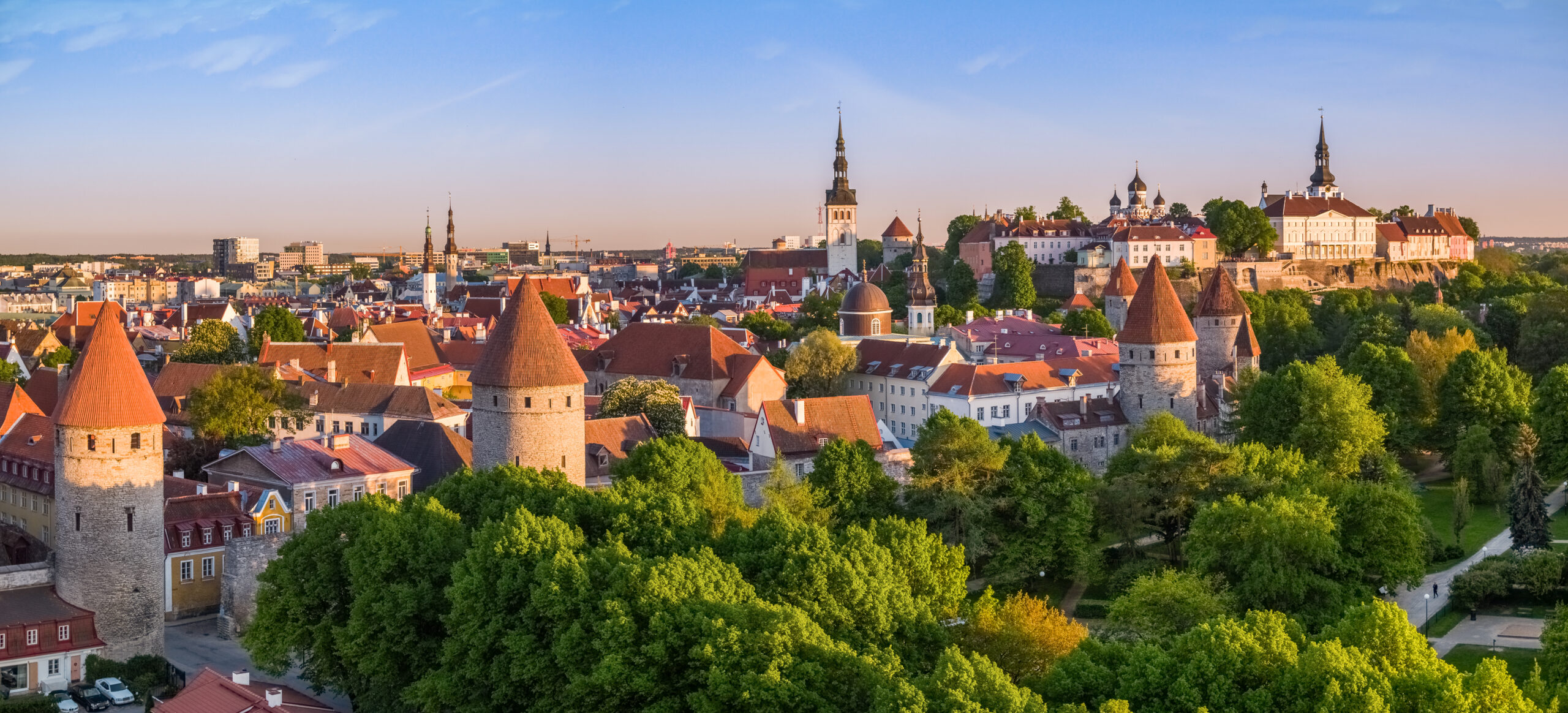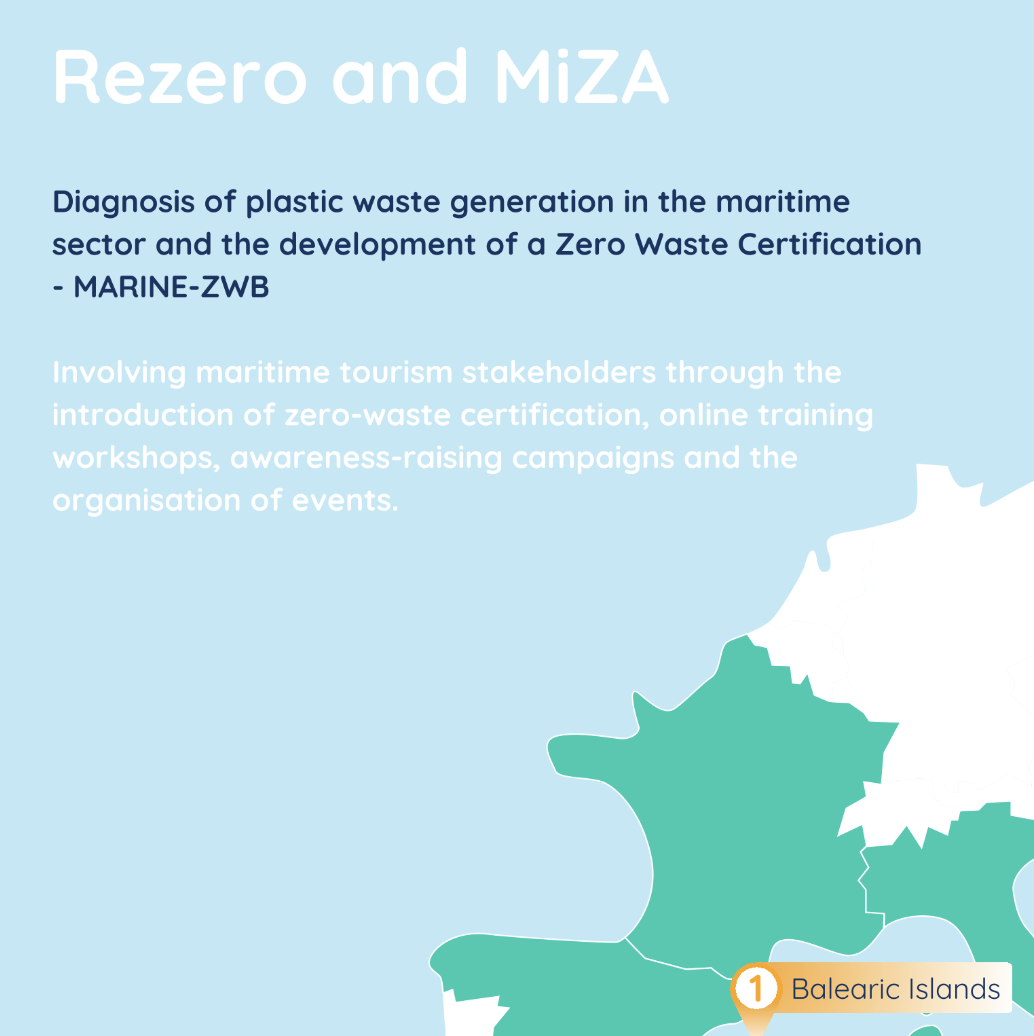Algarve, 24 September 2024 – Salema Eco Camp (Portugal) is the latest business to join the Mission Zero Academy (MiZA’s) Zero Waste Business Certification.
A leader in sustainable tourism based in the Southwest Alentejo and Vicentine Coast Natural Park, their road to Certification includes a comprehensive bio-waste composting programme, and marks a significant step in enhancing sustainability practices in a heavily touristic region.
Joaquim Lourenço, Director of Salema Eco Camp, stated: “Being zero waste means showing our team and clients that we are fulfilling our core commitment: protecting and regenerating our planet.”
Karolina da Matta, Host Team and Culture Manager, added, “Achieving Zero Waste at Salema Eco Camp is about more than a goal—it’s about fostering a shared awareness of how each individual can contribute to a greener planet.”
Kaisa Karjalainen, Director of MiZA, stated: “Waste is the most visible environmental aspect for tourists, so reducing it and ensuring its proper management is key to enhancing guest experience. More importantly, it will help the whole industry remain attractive to both visitors and locals. We are excited to have Salema Eco Camp lead the zero waste transformation in the Algarve region. The recognition as On the Road to Zero Waste ensures the conditions for success are already in place, and we look forward to seeing the results.”
A commitment to sustainability in a high impact region
Located in Vila do Bispo municipality, Salema Eco Camp has championed environmental conservation and sustainable living since the 1980s. The camp spans 12 hectares and offers a range of accommodations—from luxury glamping and mobile homes to traditional camping and caravanning—demonstrating its commitment to eco-friendly and slow living principles.
In the eight years under its current management, Salema Eco Camp has made impressive strides. Notable features include filtered water stations, recycling points, an eco-store, the Nazari restaurant, which highlights the carbon footprint of each menu item, and the popular Sharing Spot. The Sharing Spot is an exchange location where clients, staff, and visitors can leave or take items in good condition, such as books, toys, and clothes, promoting the “Reuse” aspect of the 3Rs (Reduce, Reuse, Recycle). This initiative has been successfully running for several years and is a favorite among the community, encouraging a culture of sharing. The camp has been calculating its carbon footprint since 2020 and has invested in photovoltaic and thermal solar panels to further reduce its environmental impact.
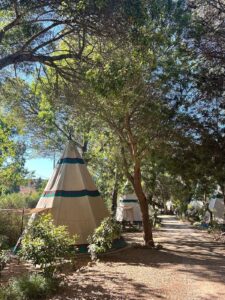
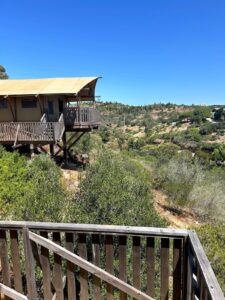
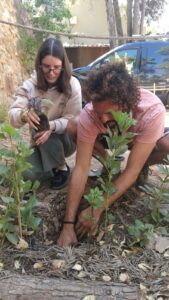
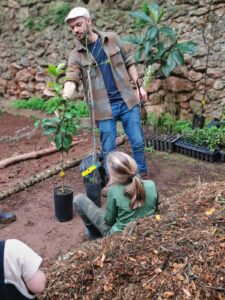
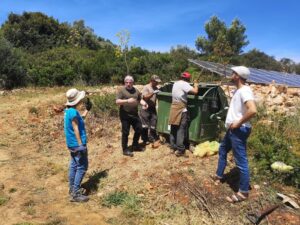
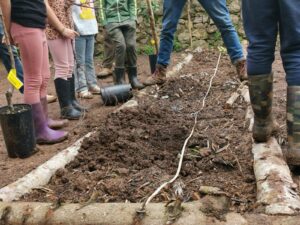
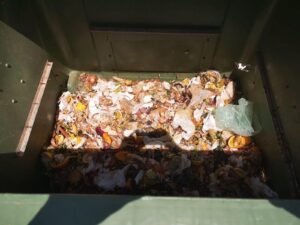
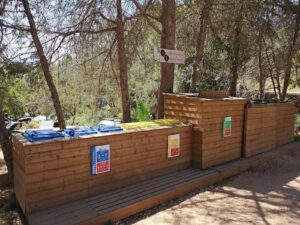
A strategic approach to zero waste
In 2023, Salema Eco Camp invested €400,000 in key sustainability projects: installing photovoltaic panels, building a Waste Water Treatment Plant (WWTP) for irrigation, and establishing a dedicated Sustainability & Regeneration team. These investments address climate change and biodiversity issues and prepare the camp for challenges like water scarcity and rising temperatures.
Improving Waste Management
Salema Eco Camp’s journey towards Zero Waste began with detailed waste audits. Initial results from May 2023 showed that around 40% of waste was food waste, about 58% had recycling potential, and only 2% was non-reusable. This data highlighted the urgent need for composting, particularly since the compost will be used on-site to regenerate forest areas and other plantings.
By June 2024, the camp estimated a daily waste production of 2.13 kg per customer, with 1.77 kg being unsorted waste and 0.36 kg recyclable. These figures underline the need for improved signage and recycling practices.
Key initiatives include:
- Short-Term Actions: Composting began on August 7, with bio-waste sites established. By December, new disposal areas will be created for items like electrical equipment, light bulbs, textiles, and cigarette butts. The camp is reorganizing its waste management area, creating a new space for recyclables, and improving waste bin configurations and signage. Staff will also receive training on the new recycling policies.
- Medium-Term Goals (6 months to 3 years): The camp will conduct a new waste characterization to assess logistics and explore options like returning transport packaging and reducing container sizes. Nudge techniques will be applied to reduce waste.
Finalising water recycling projects
Salema Eco Camp is also finalizing a water recycling project involving a Waste Water Treatment Plant (WWTP) and an irrigation system to support the regeneration of park spaces.
Inspiring regional change
Salema Eco Camp’s efforts highlight the need for better waste management systems in the Algarve region. The current infrastructure struggles during peak tourist seasons, exacerbated by insufficient political engagement and service limitations. In this context, businesses must manage their own waste through private contracts or decentralized facilities for sorting and local treatment.
Given the Algarve’s water shortage, maintaining soil quality and preventing erosion through natural fertilizers, like bio-waste-derived compost, is increasingly important. By setting a strong example, Salema Eco Camp aims to inspire other businesses and municipalities to adopt similar sustainable practices, shifting from a disposable culture to one that regenerates ecosystems and benefits the environment.
Engaging the community in sustainability
Salema Eco Camp is committed to involving both staff and guests in its sustainability efforts. The Sustainability and Regeneration team will undergo training, and a comprehensive communication campaign will promote enhanced recycling facilities throughout the campsite.
An Invitation to embrace sustainable living
Choosing Salema Eco Camp is more than booking a stay—it’s an invitation to adopt a lifestyle centered around sustainability and regeneration. The camp aspires to lead by example, encouraging other tourism operators and municipalities to follow suit and make a positive impact on the environment and local communities.
Press contacts
Sean Flynn, Media Outreach & Communications Officer at Zero Waste Europe, sean@zerowasteeurope.eu or news@zerowasteeurope.eu / +32 471 96 55 93
Ismael Casotti / ismael.casotti@zero.ong / +351 912 777 618
Angela Ferreira / sustentabilidade@salemaecocamp.com / +351 928 142 666

